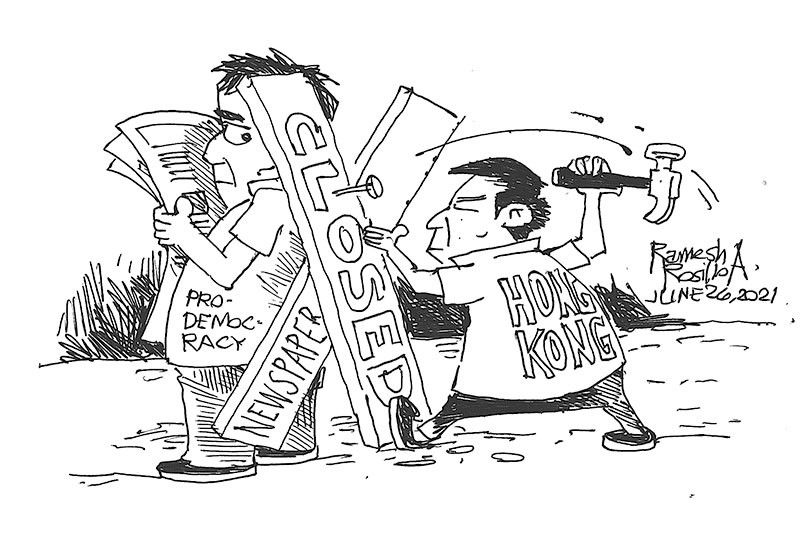EDITORIAL - Another step toward authoritarianism

A news item likely to have gone under almost everybody’s radar is the closure of Hong Kong’s last and biggest pro-democracy newspaper.
The Apple Daily, which has been a fixture of the Hong Kong news scene since 1995, printed its last edition last Thursday following a turbulent year as a result of a new Hong Kong law against “threats to national security”.
The final straw that led to the closure, according to the newspaper itself, came after police froze $2.3 million of their assets, searched their offices, and arrested five top editors and executives last week.
The editors were later accused of colluding with foreigners to endanger national security. Newspaper owner Jimmy Lai himself has been in jail since December last year, after being accused of taking part in the pro-democracy protests.
“Thank you to all readers, subscribers, ad clients and Hong Kongers for 26 years of immense love and support. Here we say goodbye, take care of yourselves,” the newspaper said in an online article.
It is tempting to immediately say the closure is an attack on press freedom being perpetrated by Beijing, as some groups and governments around the world are now already saying.
However, we are not privy to all the details behind the closure of the paper, as there may be other factors involved, including the global pandemic or even an evolving preference for news sources in that region.
But what is sure is that with this development, Hong Kong seems to have taken another step toward authoritarianism.
Just recently, the territory made new changes to its voting laws in a bid to make sure it can stuff its parliament with people loyal only to Beijing. And now the biggest instrument of pro-democracy forces in that territory has been shuttered.
Getting total control of how information is spread --and determining what information comes out-- is a sure-fire way to exert more control over a population.
- Latest























